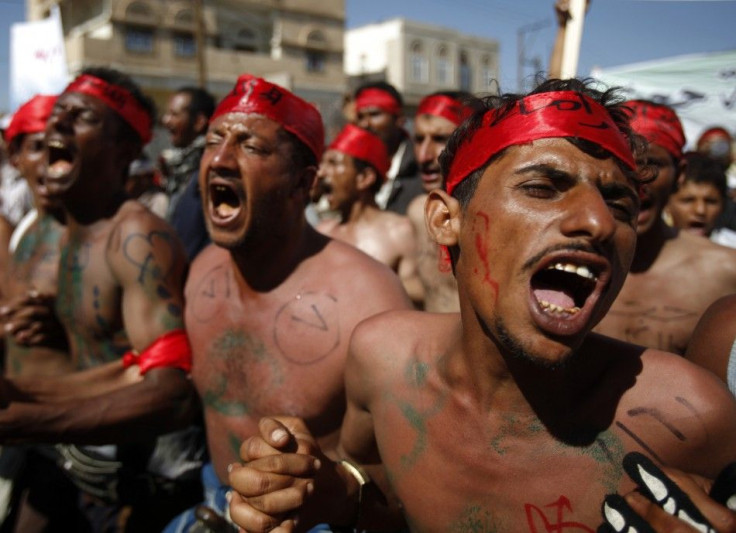Will Yemen's President Saleh Get Immunity?

Yemen's President Ali Abdullah Saleh has agreed to step down from power in response to ongoing protests in the country, but a stipulation that the former leader will receive immunity in prosecution in exchange has restarted civil unrest in the country.
On Sunday, the cabinet approved immunity for Saleh and all members of his regime for any crimes committed during Saleh's 33 years as the authoritarian head of state. That means that if the law passes through parliament the President and those considered responsible for the deaths of about 200 protestors could not be held accountable.
Protesters and human rights organizations such as Amnesty International have called the immunity law a shameful breach of justice, with some equating it to a-gang leader escaping punishment.
Compared to other Arab Spring countries, it is an unprecedented allowance. Egypt's Hosni Mubarak is currently facing a murder trial and could very likely be executed for killing protestors in January. Tunisia's Zine El Abidine Ben Ali was found guilty of corruption and was sentenced to 35 years in prison. And the fate of Moammar Gaddafi will not be forgotten anytime soon.
But, if immunity is the only -- or at least quickest -- way for Yemen to get rid of broken government and start anew, is it worth it?
The 3,000 or more protestors who flocked to Sanaa on Monday don't think so. They ended a five-day, 155-mile march in the capital where they demanded that Saleh be put on trial.
The renewed demonstrations also re-ignited the type of violence that enraged protestors from the start, and plainclothes officers allegedly shot at the protestors outside a regional governor's office in the city of Taiz, killing at least one and injuring three, according to The Associated Press.
Yemen is currently being led by a so-called Unity government, made of up politicians who are currently working on the transition of power scheme and preparing for elections to find Saleh's replacement. It is led by vice president Abd Rabbuh Mansur al-Hadi.
Diplomats, politicians and some opposition heads say that Saleh never would have agreed to step down had the immunity clause not been included. Additionally, because the time frame covers all of Saleh's 33 years in power, some former members of the government who have joined the opposition would be immune from prosecution as well. Conceivably, so would the former politicians who led militias and killed civilians.
Signing immunity into law won't stop the protestors who have vowed to boycott the February elections if Saleh escapes persecution. The strategy didn't work in Egypt for protestors upset that the military council was still in charge, but Saleh could be still be enough of a source of ire in Yemen to unify protestors.
We are planning practical steps to show our rejection of the amnesty law, activist Buthra Al Magtrai told Gulf News. We will boycott the coming presidential election, arrange sit-ins and work on bringing the attention of the national and international media to Saleh's crimes. In the coming days, families of the victims of Saleh's crackdown will organise protests across the country.
A post-Saleh country will be an inclusive and democratic one. The new government will be held accountable by the people.
© Copyright IBTimes 2024. All rights reserved.





















